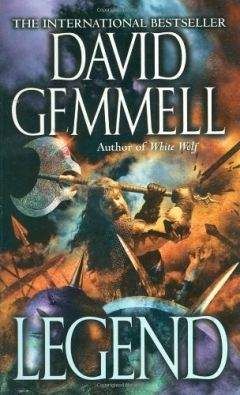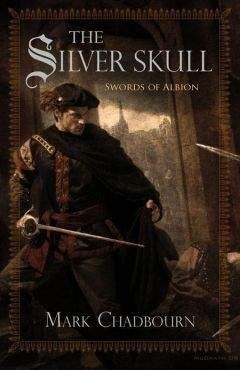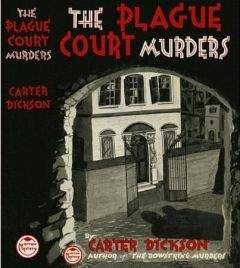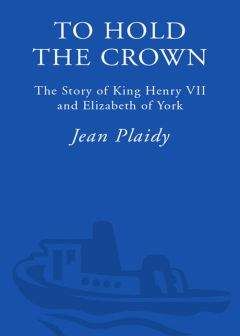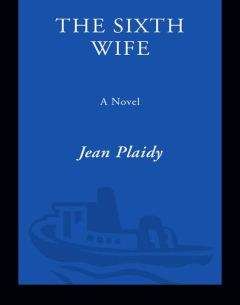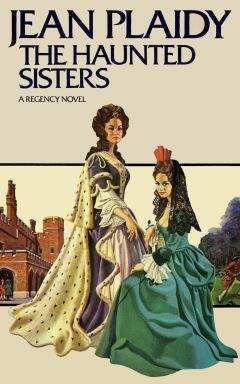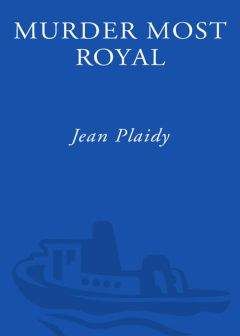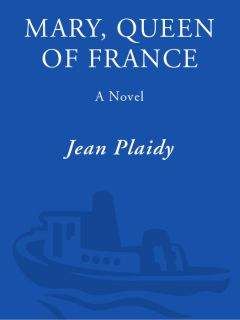Jean Plaidy - For a Queens Love: The Stories of the Royal Wives of Philip II

Скачивание начинается... Если скачивание не началось автоматически, пожалуйста нажмите на эту ссылку.
Жалоба
Напишите нам, и мы в срочном порядке примем меры.
Описание книги "For a Queens Love: The Stories of the Royal Wives of Philip II"
Описание и краткое содержание "For a Queens Love: The Stories of the Royal Wives of Philip II" читать бесплатно онлайн.
“Then I fear they will not find me to their taste.”
“We’ll make them. We’ll show them at the joust tomorrow. I have ordered a special pavilion to be set up. It will be in your honor, and the great moment will be when you ride into the arena.”
“Is that wise? I was never a good horseman. Even Zuñiga could not make me that.”
“You’ll do well, I know.” He laughed, bringing his face close to Philip’s so that it was possible to smell the mingling odors of garlic and green leaves. “Why, none will dare beat you at the tourneys! They know my orders.”
“Perhaps all the people know of this,” said Philip. “Therefore it may be a waste of time to joust.”
“Ha! You have become a cynic. No! I want the people to see you triumph over all. You must do that, Philip. You know how my brother Ferdinand plagues me; and there is Maximilian to consider. There is one thing which you must understand: No matter what arrangements I am able to make for you, it is these people who will choose their ruler.”
“Then I do not think they will choose me.”
“They will. We’ll make them. You were rather formal during your entry, but you will learn to smile and joke, eat, drink, and make love to the women. You should have a mistress without delay. That will be expected of you.” Charles burst into hearty laughter so that some of the green juice ran down his beard. “You look not too pleased at the prospect.”
“Such matters should surely come about naturally.”
“Well, ’twill not be difficult, I am sure. The women are handsome here; and how long is it since you were a husband? Oh, I know of that very sober relationship with Isabel Osorio. Very creditable. But that is in Spain. Yes; you must have a mistress without delay.”
More than ever Philip was longing for home as he watched his father’s expression, which was one of affection mingling with approval and not a little exasperation.
“And there is one other problem of great moment which we must discuss,” went on Charles. “You have been a widower too long. You must have a wife.”
Philip’s Aunt Eleonore craved audience with him.
He felt bruised and humiliated. In the tourney he had not shone. Charles had evidently not given his instructions clearly enough and Philip did not break even one lance. The people had been silent, and it was clear that they did not think very highly of their Prince.
He was homesick and weary. He hated their rough horseplay, their practical jokes, their loud laughter, their preoccupation with eating, drinking, and amorous adventure.
His father was undoubtedly one of them; he saw that now. And he, Philip, was a Prince of Spain, and would never be anything else.
Eleonore had perhaps come to commiserate, for she was a kindly woman. She had been good to the little sons of Francis the First when they had been prisoners in Spain, and they had grown to love her; but that was a long time ago now. The elder of those boys was now dead; he had died, it was said, through drinking from the cup brought to him by his Italian cupbearer who was in the service of the Italian woman, now Queen of France; the second of those boys was himself King of France, with that Catherine de Medici as his Queen who, many Frenchmen believed, had been responsible for the death of the King’s elder brother.
Eleonore had been at today’s tourney and she would have witnessed his humiliation. It was always to women that Philip turned for compassion—to Leonor, to Maria Manoela, to Isabel, and now … perhaps to Eleonore.
She knelt before him.
“Have I your Highness’s permission to speak frankly?”
“You have, dear Aunt.”
He would have liked to embrace her, but he could not bring himself to do so. He could only sit straight in his chair, bid her rise, bid her be seated; and even while he longed for her compassion he could not behave otherwise than as the Prince of Spain.
“I wish to speak to you of my daughter.”
“The Princess of Portugal,” said Philip; and he felt excited, for Eleonore’s daughter was the aunt of Maria Manoela.
“She is a charming girl,” went on Eleonore, “and I am sure you would love her. She has already heard of you and talks of nothing else, so I hear. There would be a good dowry with her, and I doubt not that if you approved the match, the Emperor would also.”
“Maria …” He spoke the name so quietly that she scarcely heard. He was living it all again, seeing her ride into Spain with her Castilian cape about her shoulders, raising her frightened eyes to his—Maria Manoela who had gone and in her place had left him Carlos.
He rose and walked about the room, for he did not want his aunt to see his emotion. At length he stopped and looked at her.
“Have you spoken of the marriage to the Emperor?”
“No, your Highness; but I doubt not its possibilities have occurred to him.”
“I will consider them,” he said; and he bowed his head in a manner which told her the interview was at an end. She accepted dismissal and left him alone with his thoughts.
It seemed to Philip that life was ironical. He was required to have a wife; and he would, of course. When had he ever failed to do what was expected of him? It was almost as though he had reverted to his youth when his father had said to him: “Jeanne of Navarre is divorced from that fool of Clèves. What think you of taking her for a wife?”
He had thought of it. He remembered afresh his feelings for her. He recalled how she had gone to the Cathedral to present her protests to the bishops, how she had defied her mother and King Francis. At that time he had delighted in her bravery; now he saw her conduct in a different light. Such a flouter of authority was not a fit wife for him.
His Uncle Ferdinand was impressing on the Emperor that his, Ferdinand’s, daughter would make a suitable Queen of Spain. Ferdinand would be ready to make concessions regarding this complicated matter of settling the inheritance if, now that his son had married the Emperor’s daughter, the Emperor’s son Philip married his daughter.
Philip wanted neither Ferdinand’s daughter nor Jeanne of Navarre. Maria of Portugal roused memories, but he longed for the peace of Isabel’s home and his own children playing at his feet.
His thoughts were uneasy. He knew that soon he must take a wife, and he wanted none of them—not Maria who might bring too poignant memories of Maria Manoela, not Jeanne of Navarre, that strong-willed young woman, nor Ferdinand’s daughter, a union with whom would make the settlement so much easier. He wanted none of these women; he wanted only Isabel, whom he thought of as his wife.
He was melancholy, longing for home.
But, being Philip, he did his duty. He tilted in the tourneys; he accepted the prize as victor, although he disliked doing so, knowing that his victory had been arranged. The spectators knew it too; he was aware of their cynical glances.
He knew they whispered about him. “The solemn Spaniard was never able to break a lance in even combat. Lances have to be made soft when set against him, that he may wear the victor’s crown.”
The Emperor was uneasy, but he was too wise to arrange more jousts and tourneys with more faked victories for Philip.
In spite of his exasperation, he was full of affection for his son. Philip’s grasp of statecraft was as sure as ever; he was never brilliant, but always intelligent. While he had a plan to follow he would plod steadily on, but if he had to make a decision, as surely every leader must, he would take so long to reach it that valuable opportunities were lost. No flashing genius this, but what admirable determination, what power of control, what steady, plodding virtue. When he contemplated Philip, Charles was reminded of François Premier merely by the wide gulf between the two. François had been witty and brilliant, but where had that led him? Once it had taken him to Pavia; and some said that his love of pleasure had driven him earlier to his grave than he might otherwise have gone. And Henri Deux, the son of François, who now ruled France, was another such as Philip—slow, steady, almost completely faithful to his mistress, Diane de Poitiers. Henri was not unlike Philip, and he was proving that he could successfully rule a kingdom. It might be that there was no need to worry about Philip; but Philip must please these foreigners; Philip might rule Spain as well as Henri ruled France, but Philip had an additional task; he must ingratiate himself with strangers if he was to succeed to the position held by Charles.
Every day father and son spent hours together. Every lesson of government and statecraft which the Emperor had learned at great cost and bitter experience, he passed on to Philip, and Philip absorbed this instruction with that thoroughness which was a part of his nature.
There were family gatherings, with Mary of Hungary giving her views. Eleonore was trying hard to bring about a match between her daughter and Philip. There were festivities and entertainments, and always Charles was trying to show the Flemings that his son was becoming more and more like them. He selected the most comely women for his son’s approval, but while the Emperor was able to make his choice with the greatest ease, Philip hesitated.
There were titters in the court, and in the quietness of private apartments there was much bawdy chatter concerning the Prince of Spain.
This would not do, the Emperor decided. He knew that if he were to declare his son to be the future Emperor, the people of Brussels at least would rise against the judgment.
In desperation, Charles sent for a certain woman whom he knew well. She was by no means virtuous, but of what use to Philip at this stage was a virtuous woman! She was beautiful and there was about her a childishness combined with a motherliness which was very appealing. The Emperor looked at her with some regret as he gave her his instructions, for he would have liked her for himself.
To this lady he said: “The Prince is a strange man. Few understand him. He seems cold, and so he is; but there is passion somewhere within him. His religion has kindled it; so could a woman. He loved his wife but she died. Appeal to his chivalry. He has plenty to spare for ladies in distress, and I doubt not that before long you will be his mistress.”
She turned her beautiful face to the Emperor and smiled. “Your Imperial Highness need have no fears. I will do this.”
“Fears!” cried the Emperor. “I have no fears, dear lady. I have only regrets.”
And so Philip had a Flemish mistress.
Strangely enough, he was in love, but this love was quite different from the emotion he had felt for Maria Manoela; nor was it in the least like the steady affection he had shared with Isabel. This was an intoxication, an introduction to the delights of the flesh such as he had never known existed. His new mistress was expert in the ways of love, and under her tuition Philip was slowly changing. There was, he discovered, a voluptuous side to his nature. He saw no reason why he should not indulge it since his father approved. Charles had said: “My son, you are becoming a man of the world, and that is a good thing to be.”
But Philip was no lecherous philanderer; he was faithful to his mistress, and when she had his child he was as delighted as he had been at the birth of Isabel’s children.
Meanwhile eighteen months had passed, and the Emperor had shown no inclination to part with him. There were continual negotiations, not only with regard to Philip’s marriage, but also with the division of the family inheritance.
At length it was decided that Charles’s brother Ferdinand should succeed Charles as Emperor, but, on the death of Ferdinand, Philip should be given the Imperial crown. Maximilian, Ferdinand’s son, should act as Regent in Austria while Philip governed Spain, although Philip was to remain supreme over the Italian States.
“It is not what I would have wished for you,” said Charles when he and Philip were alone together, “but it is the best we can get; and now, my son, it might be well if you returned to Spain, for you must not overlong neglect your Spanish subjects. There is one matter which all wish to see settled. Have you decided who your wife shall be?”
Charles looked up with some amusement at his son’s face. Philip could never make up his mind quickly.
At length he spoke: “I think … Maria of Portugal.”
“Wisely chosen!” cried Charles. “There is a big dowry there. I should dispatch Ruy Gomez da Silva into Portugal to discuss matters. Let us hope her brother, King John, will be as liberal with his sister’s dowry as he was with that of his daughter, your little Maria Manoela, whose dowry stood us in such good stead. Then after the Augsburg Diet is concluded you can start your journey back to Spain. It will not do to let Master Max rule too long in your stead.”
“No, Father.”
“I shall be very sorry to see you go. And I know at least one other who will be heart-broken. It was a pleasant little friendship, was it not? She has changed you. I envy your youth. Don’t forget, my son, to take your pleasures. You have responsibilities and anxieties before you. Leaven them with pleasure, as I have always done.”
Charles sighed and looked sadly at his gouty feet. He spat out the leaf he had been holding in his mouth and took a fresh one.
He was thinking that he himself had been rejuvenated by this change in Philip.
And in that mood they went to Augsburg for the Diet.
The days passed quickly in Augsburg, for Charles as well as for Philip. There were state matters to attend to every day; there were the Fiefs of the Empire to be received. Charles had at last settled affairs with his brother, and although neither was entirely satisfied, they both realized that they had come as near to satisfaction as could be expected.
Reviewing the last years, Charles considered he had good cause for satisfaction. His son Philip was a young man of whom he could be proud. Very soon he would be able to leave the responsibility of government in the hands of that worthy young man. It was folly to have wished for a gayer son. Yet how pleased he would have been to have begotten a son who combined Philip’s excellent qualities with charm, gaiety, and that bold manliness which the Flemings demanded of a leader.
Charles was in this meditative mood, sitting at his palace window, when he saw a beautiful girl below. Her fair thick hair was coiled about her head, and her costume proclaimed her to be a burgher’s daughter.
He watched her, wistfully admiring her youth. He could see the shape of her strong, firm legs and thighs beneath her skirts; her profile was clear-cut, and she walked with a modest unawareness of her beauty.
He wondered about her, and he could not dismiss thoughts of her from his mind. He forgot to put a fresh green leaf into his mouth, and indeed the fever had abated considerably. He had not felt so well for years, and the sight of the blonde girl, and perhaps the thoughts of a perfect son, had made him feel almost a young man again.
He saw the girl again on another occasion and he, keeping watch for her, discovered that she walked past the palace every day. He played with the idea (so beloved of kings) of walking through the streets disguised, of making her acquaintance, and, temporarily setting aside his imperial dignity, wooing her as a nobleman.
Подписывайтесь на наши страницы в социальных сетях.
Будьте в курсе последних книжных новинок, комментируйте, обсуждайте. Мы ждём Вас!
Похожие книги на "For a Queens Love: The Stories of the Royal Wives of Philip II"
Книги похожие на "For a Queens Love: The Stories of the Royal Wives of Philip II" читать онлайн или скачать бесплатно полные версии.
Мы рекомендуем Вам зарегистрироваться либо войти на сайт под своим именем.
Отзывы о "Jean Plaidy - For a Queens Love: The Stories of the Royal Wives of Philip II"
Отзывы читателей о книге "For a Queens Love: The Stories of the Royal Wives of Philip II", комментарии и мнения людей о произведении.





